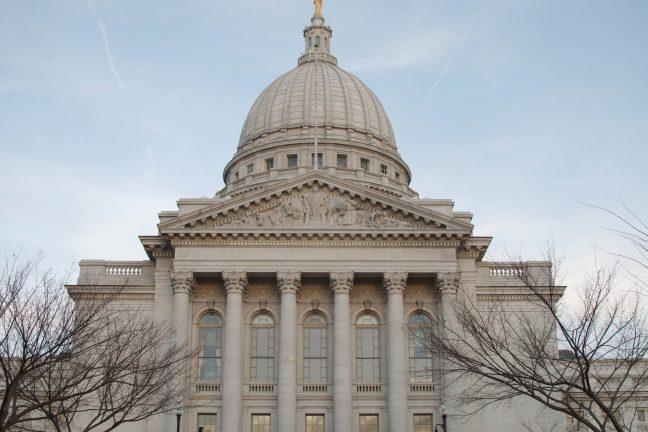Labor union membership is declining in Wisconsin. Thirty years ago, over 20% of Wisconsin’s workforce was represented by a union. Today, that figure is less than half of what it once was, according to the Bureau of Labor Statistics. This trend is not unique to Wisconsin — almost every state in the U.S. has seen union membership rates decrease over the last 50 years.
Efforts from former Gov. Scott Walker (R) are responsible for the decline in union membership in the last decade. Act 10, signed by Walker in 2011, prohibits collective bargaining efforts for workers in the public sector — effectively destroying union representation for public employees in Wisconsin overnight.
Act 10 was followed by a Republican-led “Right-to-Work” law four years later that undermined the power of private sector unionization — outlawing union membership as a condition of employment. The effect — a loss of over 137,000 union members within a decade, according to the Milwaukee Journal Sentinel.
The decrease in labor union membership is bad for workers in Wisconsin. On average, non-unionized workers earn only 83% of what their unionized counterparts earn. Union members also enjoy better working conditions than non-unionized workers. The Department of Labor states that unions help narrow the gender and racial pay gaps as well as give people more security in advocating for worker rights.
For many of the state’s documented and undocumented immigrant workers, labor unions are especially crucial to empowerment in the workplace. Immigrants face particular challenges, such as language barriers, employer use of undocumented status to coerce workers and substandard pay.
In California, for instance, investigations from U.S. labor officials found labor violations in 85% of garment factories in Los Angeles and $1.3 million in unpaid wages in factories with a large population of immigrant workers.
Immigrant labor is essential to Wisconsin’s economy and the national economy at large. Over 6% of Wisconsin’s workforce is immigrant workers, contributing to a wide range of industries and occupations.
Annually, immigrants in the state contribute billions of dollars as consumers and taxpayers, according to the American Immigration Council. Immigrant presence in Wisconsin makes the state stronger, yet their labor is under attack.
During the peak of the COVID-19 pandemic, the outsized role of immigrant labor in essential industries, such as healthcare and agriculture, kept the economy running. But, many immigrants were denied personal protective equipment and COVID-19 testing resources.
The abuse isn’t new — employers across the nation have been using the lack of legal protection for undocumented workers to exploit immigrant workers and coerce them to work in unfavorable conditions.
Worker Justice Wisconsin is fighting back. WJW is dedicated to organizing collective action against wage theft and employment discrimination on behalf of low-wage, non-unionized immigrant and non-English speaking workers, according to their website.
Established as the Interfaith Coalition for Workers Justice in 1999, the WJW has long since aided the needs of low-wage immigrant workers in Dane County and beyond. After merging with the Workers Rights Center, the ICWJ and WRC came together to form Workers Justice Wisconsin.
WJW has helped employees at Crushin’ It Apparel and Clarion Suites at the Alliant Energy Center organize to demand better labor practices and treatment from their employers. The organization recognizes that discrimination and wage theft are not isolated issues but rather are quite widespread in Wisconsin. The solution they offer is collective action that empowers workers and encourages employer accountability.
Finding a fix for immigrant labor exploitation is difficult. Temporary worker visas like the H-2A and H-2B give employment opportunities to foreign workers to work for a time in the U.S., filling the demand for labor that otherwise would not be satisfied domestically.
Though these visas are government-sponsored, the U.S. Government Accountability Office reports that many H-2A and H-2B employers are risky for migrant workers — charging them undue fees and misleading them about the wages or conditions of the job in the recruitment process.
The American Federation of Labor and Congress of Industrial Organizations argues that a path to legal status is necessary to stop wage theft and workplace abuse for all workers. Protections from the H-2A and H-2B visas fall short. Only through obtaining a green card or citizenship will employers be unable to use immigration status to threaten and coerce workers into accepting illegal labor conditions.
The political reality in the federal government ensures that expanding legal pathways to citizenship for immigrant workers will prove difficult in the near future. The GOP in recent years has adopted a hard-line approach to immigration — associating immigration with drugs and crime in speeches and advertisements — rather than acknowledging the crucial role that immigrant labor plays in sustaining economies. Bipartisan efforts to reform immigration policies are rare.
While workers wait for action from Washington, Wisconsin employers will continue to take advantage of marginalized immigrants. Organizations like Workers Justice Wisconsin serve as critical watchdogs for labor discrimination and abuse against low-wage immigrant workers in our communities in an era of declining Wisconsin labor union membership.
Jack Rogers (jkrogers3@wisc.edu) is a freshman studying economics and Chinese.


